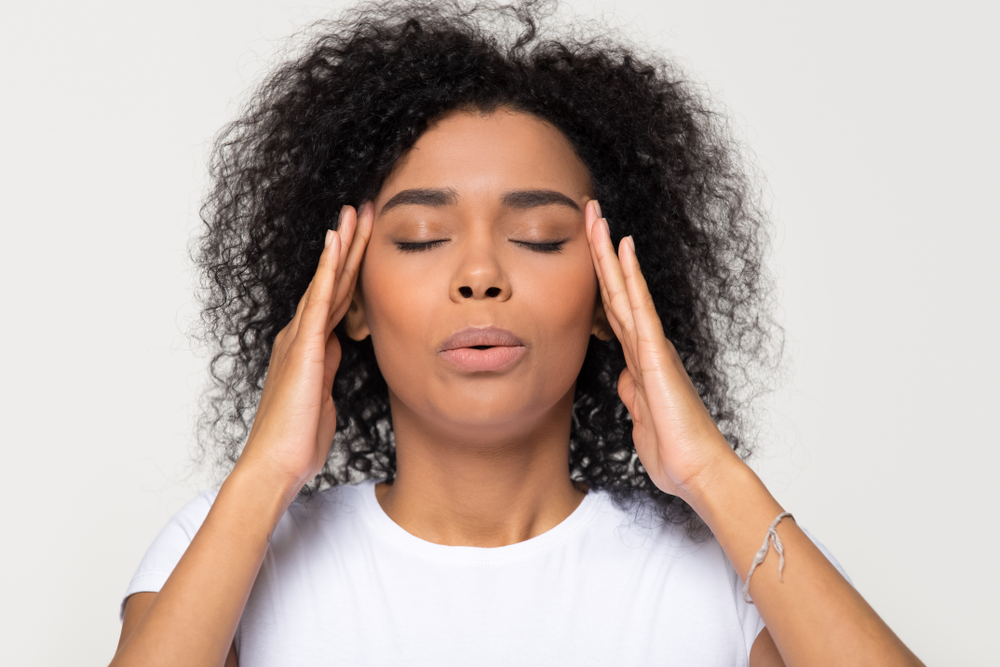
24 Nov Calming Your Anxiety in the Moment
When we experience a threat, either real or perceived, our bodies go through the fight, flight, or freeze response. Our sympathetic nervous system gets activated and may cause anxiety symptoms, such as sweaty palms, a fast heartbeat, racing thoughts, tense muscles and difficulty breathing. Sometimes, this anxiety gets so high it feels like it will never come back down. Our rational thinking and problem-solving skills go out the door and feels like there is nothing that can be done. Calming your anxiety in the moment is possible and it takes practice.
Calming your anxiety in the moment isn’t easy. Knowing the strategies ahead of time will help, but it helps to practice them ahead of time. Practice is important because it prepares you for what to do. If we don’t practice, then it is difficult for our minds to think of the skills when they need them the most. Just like in a sport, the player has to practice before playing the game, otherwise, the other players will outplay him. Your anxiety will outplay you if you aren’t prepared.
Calming Your Anxiety with Mindfulness
Practicing mindfulness is an effective way to fight anxiety in the moment. Being mindful can help you recognize when your anxiety is increasing. It can help you identify thoughts that might be triggering your anxiety. You know, the “what if” thoughts that tend to creep up sometimes, or when you replay a conversation you had with a friend that didn’t go as planned. When you can stay mindful and notice what is happening, you can use strategies to derail your anxiety from getting too big.
Cold Water Can Help Calm Your Anxiety
When you are experiencing high anxiety, your Sympathetic nervous system is activated. Cold water will activate the Parasympathetic nervous system and help calm your body down. This is the rest and digest nervous system in your body. When this is activated, it will lower your anxiety. It will not take it completely away, but you will be more likely to be able to think rationally and problem solve.
Calming Your Anxiety with Breathing
Breathing is important! We all have heard people talk about taking deep breaths to calm down. Paced breathing is a controlled breath that will help you calm down. When I work with my clients, I tell them to breathe in for 4 counts, hold it for 4 counts and breathe out for 7 counts. If you are having trouble slowing down your breath while exhaling, try making a “sss” sound as you exhale. This will force you to slow down. No matter how you do it, you want your exhale to be longer than your inhale. Focus and control this breathing technique and repeat as many times as you need to.
You can also put one hand on your forehead and one hand on your stomach. Breathe in through your nose slow and controlled and out through your mouth slow and controlled. Repeat as needed.
Try Progressive Muscle Relaxation
Tensing and relaxing your muscles can calm anxiety down. This is the act of taking a group of muscles and tensing them as you breathe in. As you breathe out, relax your muscles. Focus on squeezing your muscles tight and feeling them melting as you relax and exhale. This will allow the muscles to relax and not be so tense. Relaxed muscles will send signals to your brain that everything is okay.
Practice makes perfect
Practice! Practice! Practice! As I said before, practicing the skills will help train your body to cope with the anxiety more effectively. If you are a person that has high stress and tension, then your baseline is already higher. It will take you a shorter amount of time to reach the high anxiety mark. Practicing your calming strategies can help lower your baseline and help your body remember what to do in the moment.
When we do progressive muscle relaxation, this will help us recognize the difference between our tense muscles and our relaxed muscles. Your body can use this method in the moment as it helps reduce anxiety. Sometimes we aren’t even aware of how tense our body actually is. When we walk around tense, this may set us up for an increased baseline anxiety. Practice the breathing exercises when you are not highly anxious. This will make finding this resource within you easier when you need it. Don’t forget to practice mindfulness. You can do this by focusing on your 5 senses mindfully.
Lastly, make time for exercise! Exercise is an excellent way to help you manage stress and anxiety.
Remember, emotions are just emotions. They serve a purpose and may not always be helpful to us. You can master calming your anxiety in the moment by practicing these strategies and reminding yourself that you can get through it!

Lisa is a Licensed Clinical Social Worker who earned her master’s degree from The Ohio State University. She grew up in Libertyville and is thrilled to return to her hometown after 15 years of clinical experience in a variety of settings, including home-based case management, schools, outpatient mental health, and hospitals.
Lisa has provided treatment in clinical settings for children, teens, adults, and families who struggle with depression, anxiety, mood disorders, trauma, stress, gender identity issues, self-esteem issues, impulsivity, defiance, and attention deficits. Lisa has worked in the schools implementing programs and services to individual students and groups to enhance coping skills and academic performance and has worked in crisis teams assessing for suicidality as well as crisis management. She uses CBT, DBT, Solution-focused therapy, play therapy (for younger clients) and EMDR to help her clients and their families reach their goals. Lisa is also trained to work with and assess adolescents for substance use, if this is a concern. She provides a non-judgmental, client-centered environment assisting clients to reach their personal goals of therapy. She believes in utilizing a team effort to help families become empowered and work through stressful times.



Sorry, the comment form is closed at this time.